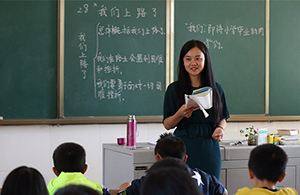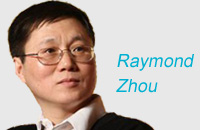Abe is taking Japan down a dangerous path
By Han Dongping (chinadaily.com.cn) Updated: 2013-01-17 14:39One of my Japanese students threatened to sue me because I only talked about Japan's atrocities against the Chinese during WWII in my class, and that I did not talk about Chinese killing the Japanese. I told her that the Chinese did not go to Japan to kill the Japanese, but the Japanese came to China to kill the Chinese. But she was not convinced. She insisted that I did not consider her Japanese feelings when I talked about Japanese war crimes in class.
I asked her if she considered my Chinese feelings when she threatened to sue me simply because I talked about the Japanese war crimes in China. Would she sue a white professor if he said the same thing in class. Upon hearing this, she cried. She was worried that I would hate her after what happened. I told her that I was her professor. It was my job to teach her what happened in the past. I would not be angry with my students simply because they were ignorant. I told her that there were many Chinese who hated the Japanese because of their war crimes against Chinese people, including my own mother and father-in-law.
My mother was a little upset when I told her I had a few Japanese friends in the US because her home was bombed by Japanese airplanes twice. My father-in-law wrote a will, asking all his children to remember the Japanese atrocities against the Chinese because his grandmother was killed by Japanese soldiers during the war. I can understand my mother's and my father-in-law's enduring anger against the Japanese. But as a scholar I do not want to be affected by these past life experiences alone.
One day I said in class that the Japanese imperialists were racists. When an American student told a Japanese student what I said in class, he rushed to my office to confront me. I told him that I did say that Japanese imperialists were racists, and I also said that all imperialists were racists because they did not value the lives of other races. In order to educate him, I took ‘The Pacific War' from my bookshelf, a book written by Saburo Ienaga, a leading Japanese scholar, and told him to read it and then to come back to discuss the issue with me. A few days later, this student came back to my office. With tears in his eyes, he told me that he did not know anything about what Japanese soldiers did in China before, and he was saddened by it.
Another Japanese student in one of my classes insisted that China did not defeat Japan in WWII and it was the US that beat Japan. Therefore, Japan did not need to apologize for China. I told her that it was true that China did not defeat Japan during WWII by itself, and that the US and Soviet Union played important roles in defeating Japan in the final stages of WWII. But the Chinese people did not give up fighting. As long as the Chinese people continued to fight, they would defeat Japan sooner or later. China was able to defeat even the US led UN forces in Korea a few years later. Only then, was I able to make my Japanese student see the point.
I am talking about my Japanese students' behavior here mainly to illustrate the dangers that accompany the Japanese Government's failure in educating the Japanese public, particular its young people about Japan's war crimes against Chinese and other people during WWII. But as the Japanese elite refused to confront their criminal past, and because they refused to educate the Japanese youth about the truth of WWII, they sowed the seeds for more conflicts in the future. The Chinese people and Chinese government must take this attempt by the Japanese government to challenge the verdict of WWII very seriously in order to maintain peace in the future.
Japan miscalculated the Chinese people's determination to defend their motherland, and stumbled into full war with China, and in the end inflicted on itself tremendous hardships. Following the end of WWII, Japan was able to escape more serious destruction because China was involved in a civil war and because the US was overwhelmed with the cold war with the Soviet Union.
It seems that Japan is again miscalculating the international situation, attempting to utilize the tension arising from the territorial disputes in the South China Sea and America's desire to return to Asia. The Japanese government should be careful, and should not hope to be as lucky as it was following the end of WWII.
The Chinese people and the Chinese Government must learn the important lessons from the past, and be prepared to deal with the Japanese military threat. The best safeguard against war is the readiness to defeat the aggressors when they arise. The Japanese elite needs to understand that China and the Chinese can no longer be pushed around like in the old days. Japan will have to pay a far higher price if it moves to challenge the verdict of WWII.
The opinions expressed here do not represent the views of the China Daily website












